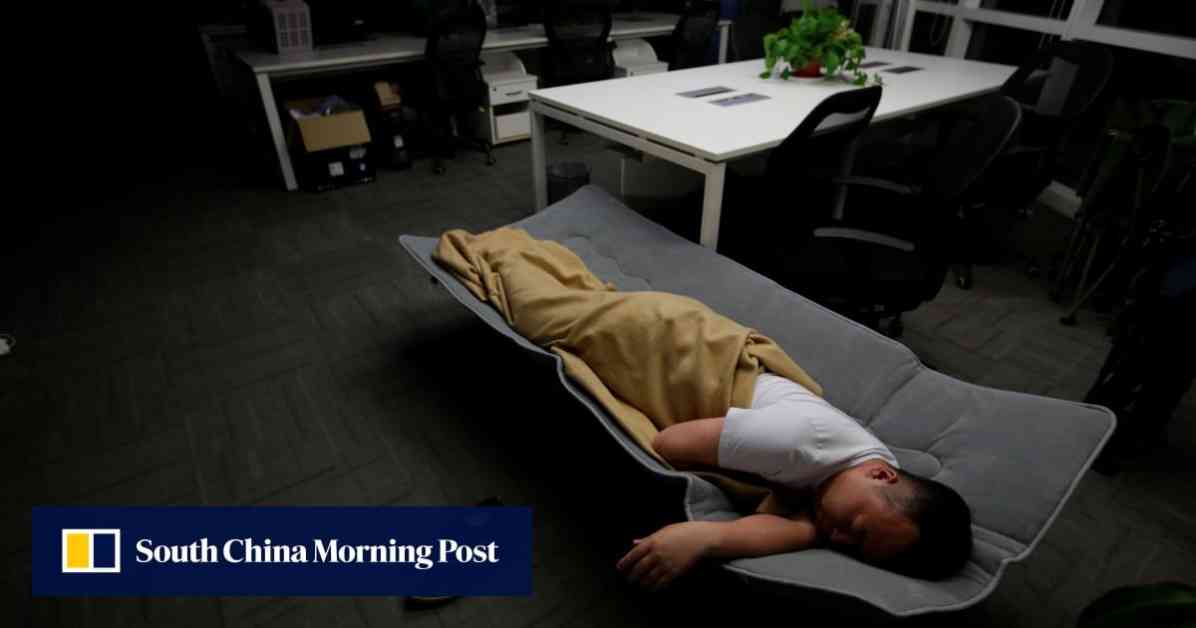In late February, a significant shift in work culture has been observed among China’s top companies, with DJI, the country’s leading drone manufacturer, taking the lead. The employees at DJI’s headquarters in Shenzhen now participate in a nightly ritual where human resource managers prompt workers to leave their desks by 9pm sharp. This new rule of clocking out by nine has transformed the bustling tech company’s atmosphere, once known for burning the midnight oil.
The deserted parking lots and quiet corridors that now characterize DJI’s campus stand in stark contrast to its previous reputation of employees working well into the night. This change in policy comes in response to recent government efforts to address China’s intense work culture, which has long been criticized for its relentless demands on employees.
Premier Li Qiang’s announcement last Wednesday at the National People’s Congress signaled a nationwide crackdown on “neijuan,” a term that encapsulates the self-destructive cycle of competition in which companies find themselves investing more resources despite diminishing returns. This move has sparked conversations both online and offline, with social media platforms flooded with anecdotes from individuals affected by the changing landscape of work in China.
Expert Insights on Changing Work Culture
Experts in the field of workplace dynamics have weighed in on this shift in China’s work culture, emphasizing the importance of creating a sustainable environment for employees. Dr. Lin Zhao, a renowned psychologist specializing in workplace well-being, highlighted the detrimental effects of prolonged work hours on mental health and productivity.
“By implementing policies that prioritize work-life balance, companies like DJI are not only benefiting their employees’ well-being but also enhancing overall productivity in the long run,” Dr. Zhao commented. She emphasized the need for organizations to adapt to changing societal norms and prioritize the holistic health of their workforce.
The Human Impact of Work Culture Changes
Behind the headlines and government directives are the stories of individual employees navigating the evolving landscape of work expectations. One such employee, Zhang Wei, shared his experience of being ushered out of DJI’s offices promptly at 9pm after years of working late into the night.
“It was a surreal moment for me, realizing that I was being encouraged to go home and rest instead of burning the midnight oil,” Zhang reflected. “While the change initially felt jarring, I’ve come to appreciate the focus on work-life balance and the acknowledgment of our well-being as employees.”
As China’s top companies continue to reevaluate their work cultures in response to external pressures and internal reflections, the human impact of these changes remains at the forefront. By prioritizing the health and happiness of their employees, organizations like DJI are setting a new standard for workplace practices in the country.
In conclusion, the shift away from the 996 work culture in China’s top companies signals a broader movement towards a more sustainable and employee-focused approach to work. As both government policies and internal initiatives drive this change, the human stories behind the headlines underscore the significance of prioritizing well-being in the modern workplace.



























